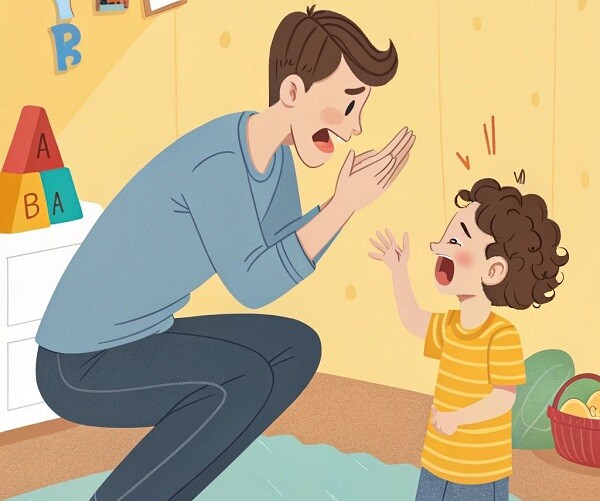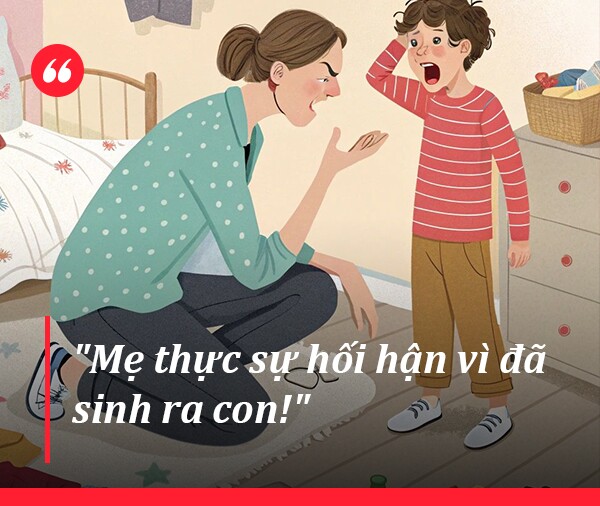Words spoken by parents in anger can leave deep impressions on a child’s psyche. Some phrases can unintentionally cause harm, making children feel insecure or doubtful about their self-worth. In the heat of the moment, it is easy to say things that may later be regretted. The following three phrases, in particular, should be avoided, even when angry.


“I truly regret having you as my child.”
When children misbehave or make mistakes, parents often lose their temper and blurt out hurtful words like these. Such statements can make children feel unwanted and unloved. It negates their very existence and erodes the sense of security that a family should provide. The pain of being rejected by loved ones can last a lifetime, leaving deep emotional scars.
What’s more concerning is that hearing these words repeatedly can lead to self-doubt and psychological issues such as depression or anxiety. Parents need to understand that a child’s growth involves constant experimentation and mistakes. Each time a child stumbles, it is an opportunity to learn and grow. Instead of lashing out, parents should offer understanding, support, and guidance to help their children navigate challenges independently.


“If you don’t obey, we won’t care about you anymore.”
This phrase may seem like a quick fix to stop a child from crying or acting out.
However, the message conveyed is that their love is conditional and can be withdrawn at any moment. The child’s sense of security is instantly shattered. To avoid being “abandoned,” children may suppress their emotions and true needs, becoming cautious, anxious, and overly obedient. Imagine a scenario where a child is crying for a toy in a supermarket. When parents respond with, “If you don’t stop crying, we’ll leave you here,” the child immediately falls silent, their small hands clenched tightly, eyes filled with fear. This is not an act of understanding but a reaction born out of fear.

Using such threats repeatedly can lead to long-term emotional damage, causing children to become timid, overly dependent, or even resort to extreme measures to test their parents’ love. These feelings silently erode the child’s sense of security and self-worth.
Therefore, discipline should not only ensure obedience but also reinforce the idea that their parents’ love is unwavering and unconditional, regardless of their actions or emotions. Setting rules requires patience, clear boundaries, and a gentle yet firm approach, rather than threats of abandonment.

“Look at your friend A, they’re good at everything.”
While the intention may be to encourage, comparing children can often have the opposite effect.
Constantly measuring a child’s achievements against others can feel like a heavy burden. Children may start to believe that they are inherently inferior or that no matter how hard they try, they will never measure up. Over time, their sense of accomplishment and self-worth erodes, giving way to disappointment. As they focus on the successes of others, they lose sight of their unique strengths and talents.
Children may possess strong logical thinking skills, be adept at problem-solving, or have artistic talents. However, when constantly compared, these strengths are overlooked, and self-doubt takes over. If this continues, children may lose the courage to try new things and may even develop anxiety and low self-esteem, hindering their potential.
The power of a parent’s words is immense and can shape a child’s beliefs and outlook. While there is no one-size-fits-all approach to parenting, and mistakes are inevitable, it is crucial to be mindful of the impact of our words. Instead, offer understanding, compassion, and unconditional love, allowing your child to grow and flourish, even amid life’s challenges.




































